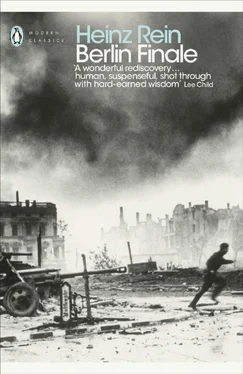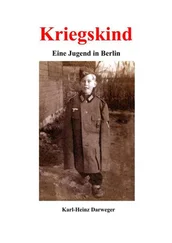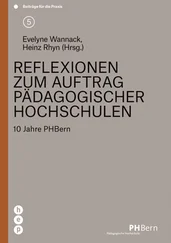Lassehn gave everything of himself that afternoon. After a brief separation he met the girl the same evening, it was like a miracle that he could not grasp. The next day they appeared at the register office in Charlottenburg, eight days later they married, and another eight days later Lassehn had to go back to the front. Those two weeks were intoxicating, but joy was mixed with pain, beauty contorted with horror, separation loomed over their union, but perhaps it was that dualism that created their curious inebriation. For the first time Lassehn was entirely absorbed in another person. He immersed himself entirely in her, he felt the heartbeat of a girl, a woman, his wife, against his chest, her hot, quick breath on his mouth, her warmth in all the pores of his body, it was a drunken pleasure, insatiable in its bid to give oneself entirely to the other person and at the same time possess them entirely, which extinguished all other thoughts, concentrating the will completely upon itself. The mystery of the opposite sex had revealed itself to him for the first time. The days were now a quivering wait for night, and night a wait for morning which would reveal a head of tousled dark hair on his shoulder. Lassehn was often ashamed of his happiness, which allowed him to lie in a white bed beside a soft, warm body when his parents had just died a terrible death, but he always managed to justify himself in the end. Did he not have to go back to the front, did he not have the right to live his life to the full before he did so?
The memory rises hotly in Lassehn, hot and painful, but the pain that seizes him now is different from the one that was once the musical accompaniment to his happiness. It is the pain of recognition that even that happiness was not real. Now that he has acquired fresh knowledge, much that seemed mysterious, which he attributed to his inexperience of the unpredictable nature of women, now appears in quite a different light.
In the past he had always ignored the memories that are now assailing him, but those memories are too concrete for him to avoid, they force him remorselessly to analyse, to draw up checks and balances, they imperiously call for understanding and conclusions. Lassehn did not feel that his wife understood him, he had an unconquerable need for tenderness, for a soft hand to stroke his hair gently, for blissful peace on a beloved shoulder, for the beating of her heart and the rushing of her blood, but she didn’t understand that, when he was blissfully happy and only wanted her near him to find confirmation for himself she pulled him to her with brutal tenderness, suffocated him with caresses and did not yield until everything ended in a wild embrace. But Lassehn’s need for unerotic tenderness did not always end like that, sometimes his wife withdrew from him for no reason, shook off his presence like an unnecessary item of clothing and gave him a look that was empty and inessential and fell upon him as if he were an unimportant stranger.
Lassehn had probably felt at the time that the sexual connection alone could not establish complete contact between them. Increasingly he had a sense that his wife had not laid the book of her life so open before him, but all of those hints and suggestions had remained so small and trivial in comparison with the great passion that time and again overwhelmed them. But now it was becoming apparent that those hints and suggestions had taken root and now, in the light of an entirely new consideration, are proliferating in confusion. Much that had remained unnoticed then, or dismissed with a shrug, is now gaining in significance. Why had Irmgard insisted on marrying straight away? At the time Lassehn had seen it as an entirely natural demand, it had even, in fact, corresponded with his own desires, though the suddenness of it surprised him. But today he is becoming aware of the discrepancy between that demand and Irmgard’s normal attitude to such matters. That attitude was free, and unburdened by traditional ideas, she was also, as she sometimes hinted in passing, by no means unexperienced in erotic matters, and had had other relationships before marrying him. So why had she only granted him an embrace once they were legally united, while with other men she had not insisted on that requirement? At the time Lassehn had sought an explanation for her favours, and found it in the idea that she was unwilling to be exploited, not being aware at the time of how platitudinous that point of view really was. Now he knows – and the recognition is a deeply painful one – that it was not the right to material support that was due to her as a soldier’s wife, that it was not even that she was wearied of erotic vagabondage, but merely an attempt to legitimize her unborn child by another man by marrying him.
But why me, of all people? Lassehn wonders desperately. Why from the great mass of men was I the one she chose? Have I only been a means to an end? Had she only given herself to him so uninhibitedly, and suffocated his hesitant references to responsibility with outbursts of passion so that she could dispel any doubts that might later arise? Had it all been a calculation? Hadn’t there been a bit of love involved as well, given that the other reasons, perhaps the true cause, could never have produced such an effect? Every question immediately yields another, the chain of ideas never breaks.
But if it was love, couldn’t she have said so openly? Would she not have felt the obligation first of all to come clean about the past, by being open and unsparing about herself and about him, rather than entering into a new relationship with a lie, or at least with a guilty silence? But that had probably been cowardice, stronger than honesty, and perhaps also fear that everything – having only begun – might already be over. At any rate, and Lassehn came at last to this conclusion, things are by no means as unambiguous and clear as Mrs Buschkamp likes to see them, her interpretation is also a little too simplistic. Lassehn is one of those people who do not believe in essential wickedness, he sees weakness, carelessness, fear, cowardice and incapacity as supposedly smaller sins, and does not know that it is the sweetness of that first embrace that still quivers within him. Lassehn feels his way tentatively through his emotions as if through a jungle, in which every step must be conquered and every path freshly hewn, but this is the path he must walk, because at the end of it stand truth and clarity. Whatever happens he must speak to his wife, the sooner the better. He must know whether the journey on which he embarked with her on 21 September 1943 leads to a common future, or whether it had already come to an end when he went off to the eastern front two weeks later.
Then a question hits him like a stone. Where is the child that Irmgard was carrying?
15 April, 12.00 noon
Lassehn gives a start when a hand grips him hard by the shoulder.
‘Who are you ?,’ asks a hoarse, raw voice.
Lassehn hears the words as if from a great distance. He was so immersed in the past that it takes him a moment to re-emerge into the present. Now the coarse words bring him and his thoughts back into the present.
‘I’m sorry?,’ he asks mechanically.
‘I want to know who you are,’ the challenging voice repeats impatiently.
At last the veil that the past had wrapped around him is torn, and Lassehn becomes aware of where he is: in the air-raid shelter of 26 Kaiser-Friedrich-Strasse in Charlottenburg. And in a flash he is also aware of his situation: a deserter with inadequate papers in a city that is keenly searching for soldiers who have fled the battlefield, a deserter, surrounded by strangers, any of whom could give him away, any of whom could be a spy, only out of fear of being accused of helping a deserter, not handing him over. Even though the whole edifice of the state is shaking and tottering and Party, Gestapo and Wehrmacht are all writhing in agony under the annihilating blows of a superior adversary, their power is still stretched around everyone like a ring of steel. The fear of terror is still great enough to give every threat the desired intensity, every order unconditional obedience. Behind everyone there still stretches the black shadow of the SS, the horror of the concentration camps and the death sentences of the People’s Courts. The man standing in front of Lassehn is dressed in civilian clothes that are also military, steel helmet, windcheater with belt and gas mask, knee-length boots and breeches, blue armband and Party insignia.
Читать дальше












